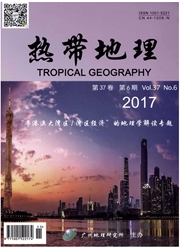

 中文摘要:
中文摘要:
在旅游业发展的背景下,居民作为文化传承者对传统地域文化的认同是文化保护的重要基础,而对居民经济利益和文化自信的扰动则是旅游业影响居民文化认同的主要路径。为了验证旅游业发展状况、居民文化认同与古村落文化保护之间的内在联系,对旅游业发展状况不同的宏村、呈坎和许村3个古村落进行田野调查。结果表明:旅游业发展如果能显著增加居民的收入,并为居民创造在开放的交流环境中建立文化自信的机会,则能增进居民对古村落文化的认同和保护意识;但如果旅游业发展中的经济利益分配很不合理,甚至明显存在适应"他者"需求的造假行为,则可能降低居民对古村落文化的认同和保护意识。因此,旅游业发展状况对古村落文化保护的影响存在显著差异,不合理的旅游业发展模式将对古村落文化的原真性保护造成巨大困难。
 英文摘要:
英文摘要:
With the development of tourism, the residents play the role of the local culture inheritors, and their cultural identity of the inheritors will have a special and important value to traditional local culture protection. Since the development of tourism may affect the income and lifestyle of residents in ancient villages, it has profound impact on the residents' cultural identity. On the basis of field work in Hongcun, Chengkan and Xucun in Huizhou, this thesis preliminarily tested the internal connection between tourism, residents' cultural identity and the preservation of traditional local culture. It shows that, if the development of tourism may increase the residents' income and provide more chance to strengthen their cultural self-confidence, it may improve residents' cultural identity and protect consciousness on ancient village. Therefore, there may be significant differences in the influence of tourism development on culture preservation, and the unreasonable development of tourism may lead to huge challenges for the protection of cultural resources of the ancient villages.
 同期刊论文项目
同期刊论文项目
 同项目期刊论文
同项目期刊论文
 期刊信息
期刊信息
